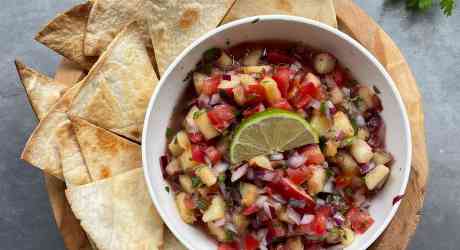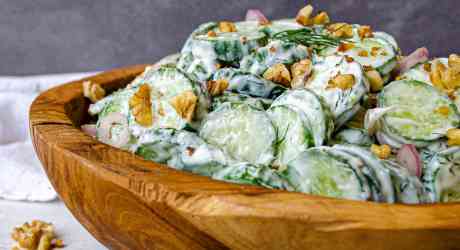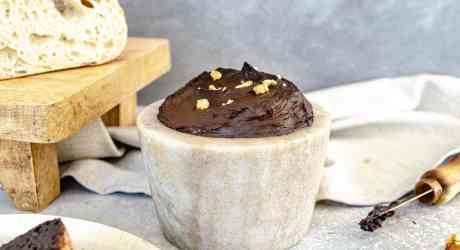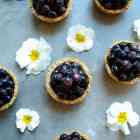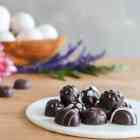Dark Chocolate Goat Cheese Honey Truffles
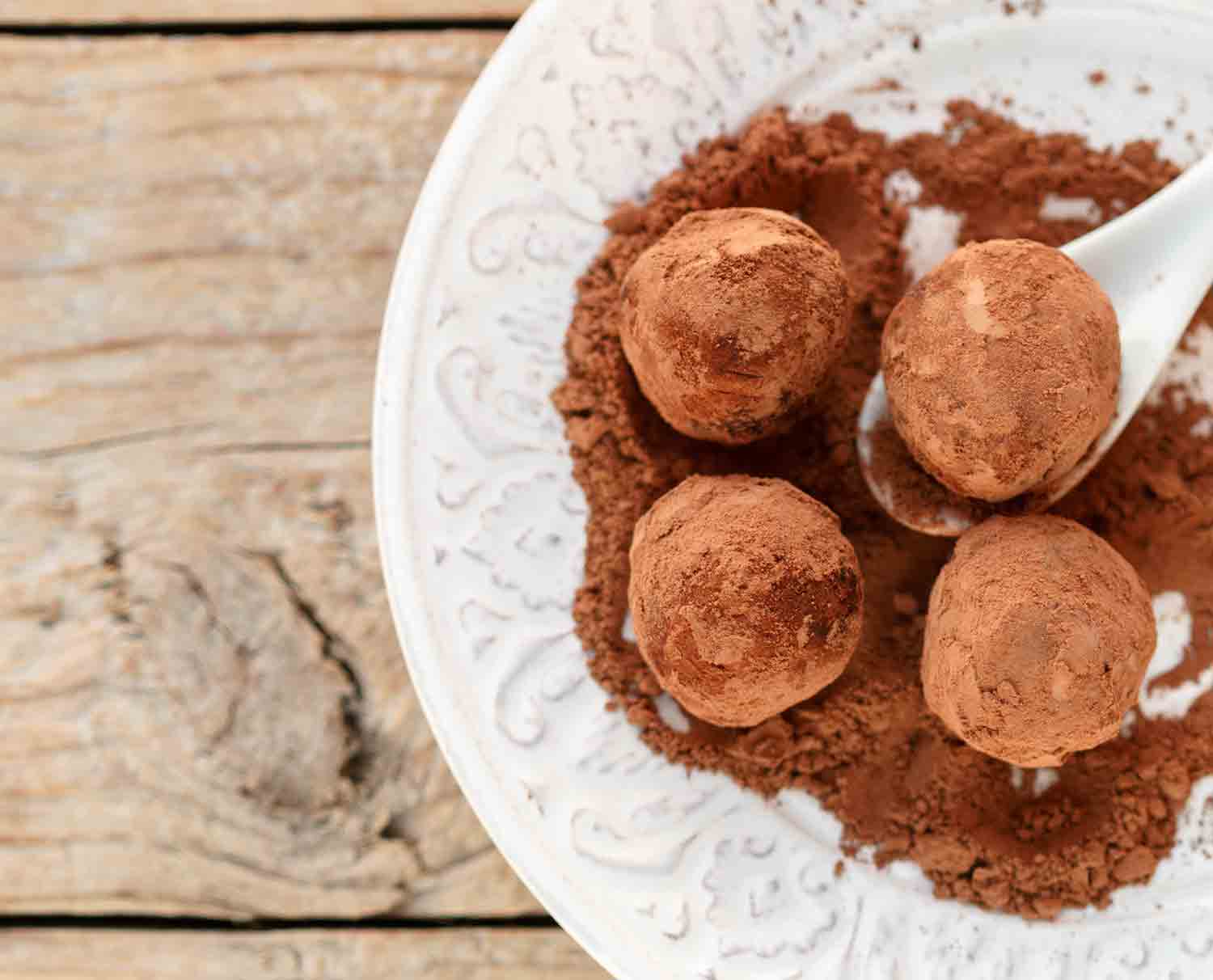
We made these delectable truffles with food sensitivities in mind. Many people are sensitive or intolerant to cow dairy. So we’ve used goat cheese to craft these little chocolate treats.
You see, it’s lactose (milk sugar) in dairy that many people cannot tolerate. But goat dairy is much lower in lactose than cow dairy, which makes it far easier on your gut (and brain!). Goat dairy is also much lower in casein, a particularly allergenic dairy protein. Goat (or sheep) dairy is overall less allergenic and less inflammatory that cow dairy. Most people who react to cow dairy DO NOT react to goat dairy, or can have it in a "rotational diet" (i.e. once every 4 days). Win!
And because we’re always looking to make delicious things that are also good for you, our truffle uses raw honey and coconut sugar for a hit of healthy sweetness, and real vanilla pods for a little extra flavour, texture and blood sugar balance!
- Using a double boiler, melt dark chocolate. Set aside.
- In a separate bowl whisk together goat cheese, orange zest, honey, coconut sugar, and vanilla beans.
- Then, add and fully incorporate the melted dark chocolate. Chill this mixture for at least 1 hour, until firm.
- To make the truffles, using a 2 ounce scoop or a teaspoon measuring spoon to scoop, roll chocolate cheese mixture into a ball using your hands.
- Roll finished balls into cacao powder, set on a baking sheet lined with wax or parchment paper. Allow to cool in the refrigerator for at least 30 minutes.
- Place a few truffles into a little gift box, and give them to someone special!
*Can’t find vanilla pods (or can’t afford them?). Get the powdered vanilla bean and use 1/2 tsp in this recipe instead.

Dark Chocolate
- One class of compounds found in chocolate (flavonoids), has been found to limit the loss of function in brain cells, which might reduce the risk of developing neurodegenerative disorders such as Alzheimer’s disease.
- Rich in antioxidant flavonoids (especially ones called catechins) that can actually reach the brain directly and may help protect your brain cells.
- The sheer happiness we are flooded with while eating (or drinking) chocolate is undeniable, and might be from the tryptophan it provides to build the neurotransmitter serotonin, which antidepressant drugs aim to boost
Honey
- The active compounds in honey are polyphenols like flavonoids and catechins, so this sweet, natural substitute for refined sugar has excellent antioxidant effects.
- Honey might actually making us happier and calmer with its anti-depressant and anti-anxiety effects, and enhance our memory.
- References
-
- Francis, S., Head, K., Morris, P., & Macdonald, I. (2006). The effect of flavanol-rich cocoa on the fMRI response to a cognitive task in healthy young people. Journal of Cardiovascular Pharmacology, 47, 215-220.
- Guillén-Casla, V., Rosales-Conrado, N., León-González, M., Pérez-Arribas, L., & Polo-Díez, L. (2012). Determination of serotonin and its precursors in chocolate samples by capillary liquid chromatography with mass spectrometry detection. Journal of Chromatography A, 1232, 158-165.
- Mijanur Rahman, M., Gan, S., & Khalil, M. (2014). Neurological Effects of Honey: Current and Future Prospects. Evidence-Based Complementary and Alternative Medicine, 2014, 1-13.
- Nehlig, A. (2013). The neuroprotective effects of cocoa flavanol and its influence on cognitive performance. British Journal of Clinical Pharmacology, 75(3), 716-727.
- Scholey, A., French, S., Morris, P., Kennedy, D., Milne, A., & Haskell, C. (2009). Consumption of cocoa flavanols results in acute improvements in mood and cognitive performance during sustained mental effort. Journal of Psychopharmocology, 24(10), 1505-1514.
